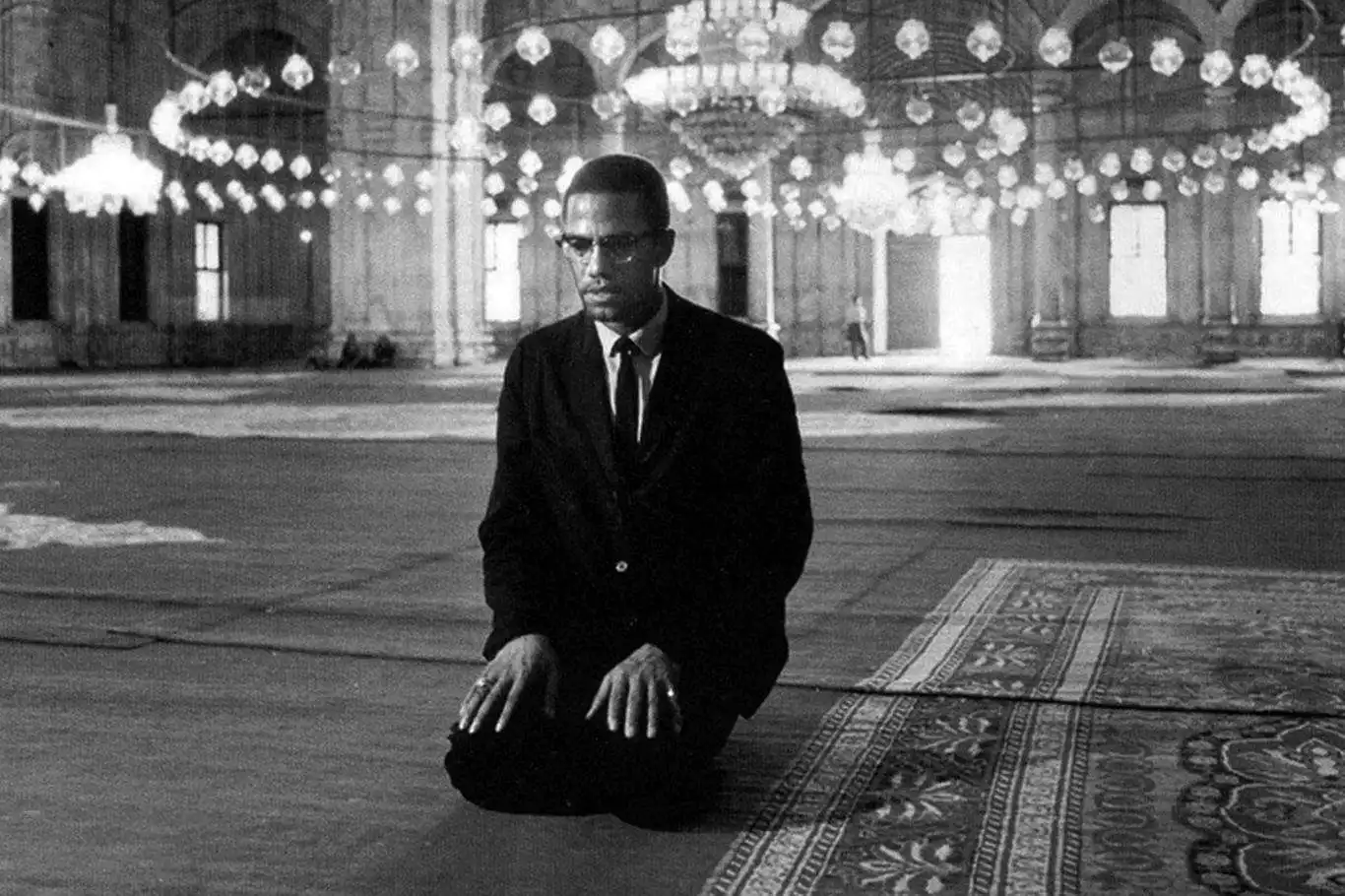Malcolm X: A Muslim life dedicated to justice and equality


On the 60th anniversary of his tragic assassination, Malcolm X, the iconic Muslim civil rights leader in the United States, is being remembered worldwide for his tireless fight against racism and his pivotal role in spreading Islam in America.
Born Malcolm Little in 1925, Malcolm X was assassinated on February 21, 1965, during a conference at Audubon Ballroom in Manhattan. His legacy continues to inspire millions across the globe, particularly in the Islamic world, where he is honored for his contributions to the fight for racial equality and the promotion of Islam.
Malcolm X famously declared: "Racism is not an ideological thought, but rather a psychological disease." His transformation from a life of crime to a revolutionary leader advocating for justice remains a compelling narrative of resilience and enlightenment.
From a Troubled Youth to a Revolutionary Voice
Malcolm X’s early years were marked by hardship and tragedy. His family was subjected to brutal racist attacks, resulting in the burning of their home and the murder of his father. His mother was later institutionalized, and Malcolm was placed in an orphanage. Leaving school at the age of 15, he moved to Harlem, where he became involved in criminal activities that led to his imprisonment in 1946.
While in prison, Malcolm X was introduced to the Nation of Islam (NOI), a movement that promoted black separatism and empowerment. Upon his release in 1952, he quickly became one of the movement’s most prominent figures under the guidance of Elijah Muhammad. His powerful speeches and advocacy for black empowerment garnered national attention, but his radical stance on racial separation also drew scrutiny from the FBI.
A Transformative Journey to Mecca
Initially, Malcolm X viewed Islam as a religion exclusive to black people, reinforcing the NOI’s ideology that blacks and whites should remain separate. However, in 1964, his journey to Mecca for the Hajj pilgrimage led to a profound transformation. Witnessing people of all races worshiping together, he abandoned his previous separatist views and embraced orthodox Islam, realizing that true Islam rejected racial discrimination.
In a letter from Mecca, he wrote:
“This Hajj to the most sacred of cities was a very special experience for me... It gave me some unexpected graces beyond my most stunning dreams. Here, there are Muslims of every color and from all over the world. I looked into the blue eyes of the whitest whites, and they saw me as their brother. Their belief in 'One God' erased all notions of race.”
Following his pilgrimage, he changed his name to El-Hajj Malik El-Shabazz and founded the Muslim Mosque, Inc., advocating for unity and social justice beyond racial divisions.
Assassination and Continued Influence
Malcolm X’s departure from the Nation of Islam and his outspoken criticism of racism in America made him a target. He survived multiple assassination attempts, including a bombing at his home. Despite receiving numerous death threats, he continued his activism, condemning racial injustice and advocating for human rights.
On February 21, 1965, during a lecture at the Audubon Ballroom in Manhattan, Malcolm X was assassinated by three gunmen. He was shot 21 times in front of a crowd that included his wife and children.
His assassination remains a controversial topic, with allegations of FBI involvement and continued calls for justice. In 2021, two men convicted of his murder were exonerated, reigniting discussions about government complicity in silencing him.
A Lasting Voice Against Oppression
Malcolm X’s speeches and writings continue to resonate today. He famously criticized American hypocrisy, stating:
“Democracy is hypocrisy. If democracy is freedom, then why are our people not free? If democracy is justice, then why do we not have justice? If democracy is equality, then why do we not have equality?”
Decades later, his words remain relevant as racial and social injustices persist globally. On this solemn anniversary, Malcolm X is honored as a martyr of justice, whose legacy continues to inspire movements for equality and human rights worldwide. (ILKHA)
LEGAL WARNING: All rights of the published news, photos and videos are reserved by İlke Haber Ajansı Basın Yayın San. Trade A.Ş. Under no circumstances can all or part of the news, photos and videos be used without a written contract or subscription.
It has been thirty-two years since the village of Başbağlar, nestled in the mountainous region of Erzincan, Türkiye, was thrown into the depths of unimaginable horror.
As the world marks the 100th anniversary of the execution of Sheikh Said of Palu and his 47 companions, Muslims across the globe are gathering to honor a defining moment in Islamic resistance history.
The Hijrah—the historic migration of Prophet Muhammad (peace be upon him) from Mecca to Madinah in 622 CE—stands as a luminous milestone in Islamic history, igniting the flame of hope in the hearts of early Muslims and serving as an enduring example for all generations of believers.
Türkiye today marks the 63rd anniversary of the May 27, 1960 military coup—a day many regard as a deep betrayal of democracy, justice, and the national will.